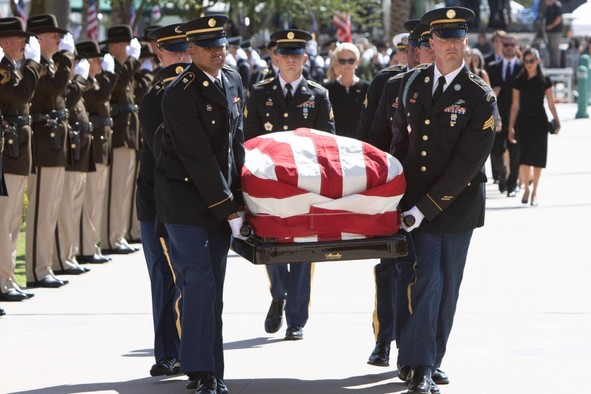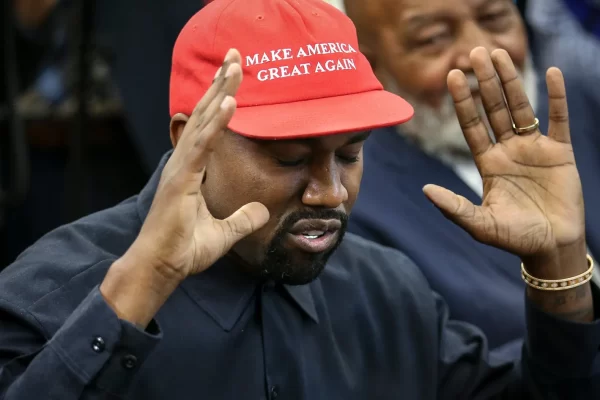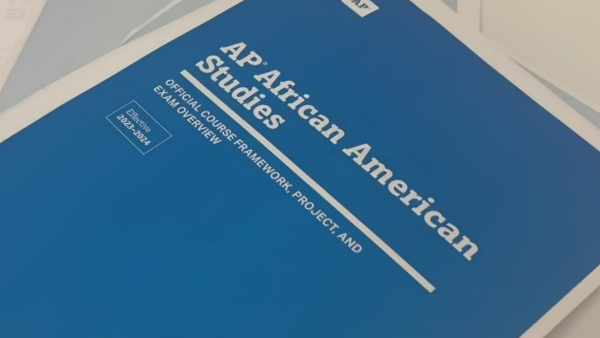McCain Beyond the Grave

Photo courtesy via Wikimedia Commons under Creative Commons license
Senator John McCain’s funeral.
Republicans and Democrats alike gathered in Washington, D.C. for Senator John McCain’s funeral, the greatest act of bipartisanship that the United States has seen in 2018 on Saturday, September 1. In an increasingly polarized country, McCain seemed to have the last laugh from beyond the grave as he chose two of his speakers to be former presidents Barack Obama and George W. Bush, both of whom beat him in the 2008 and 2000 presidential elections, respectively. As Obama stated, “”After all, what better way to get a last laugh than to get George and I to say nice things about him to a national audience.” He also specifically asked President Trump not to come, symbolizing a resistance movement against Trump across both sides of the aisle.
Gathering so many members of Washington’s royalty is no easy feat. In a political climate where people see party lines instead of issues, uniting Republicans and Democrats to honor one man is rare. In fact, John McCain represents a generation of senators who could debate ruthlessly in the chambers, then shake hands and go to lunch together. John McCain recognized that politics are about issues, not about opposing every Democratic move. In 2017, McCain was one of just three Republicans to vote down the repeal of the Affordable Care Act and prevented it from passing the Senate. As Obama said, “He did understand that some principles transcend politics, that some values transcend party,” McCain’s funeral is a reminder to search for common values between parties, instead of constantly criticizing the other.
In the past week, the news has been very kind to McCain, regardless of the commentator’s political party. Although McCain has been an asset to our country, it does not mean that the US must remember his legacy as all positive. By ignoring McCain’s more controversial decisions, the US fails to keep legislators accountable for their actions. Just because McCain has passed away does not mean that the impacts of his choices go away too. In 2010, McCain ran a campaign that was particularly tough on immigration, supporting efforts to fix the fence on the Arizona border and characterizing undocumented immigrants as criminals. McCain also supported legislation that relocated and marginalized indigenous people such as the Navajo and Apache residing in Arizona.
The bottom line? As a Democrat, I still have respect for Senator McCain, especially when it comes to his bipartisan efforts, but that doesn’t mean that I agree with many of his decisions, and that doesn’t mean those decisions don’t have consequences.

Grade: 12
Years on Staff: 3
What do you like to do in your free time? I like to read, go to coffee shops, listen to music, catch up on sleep,...











